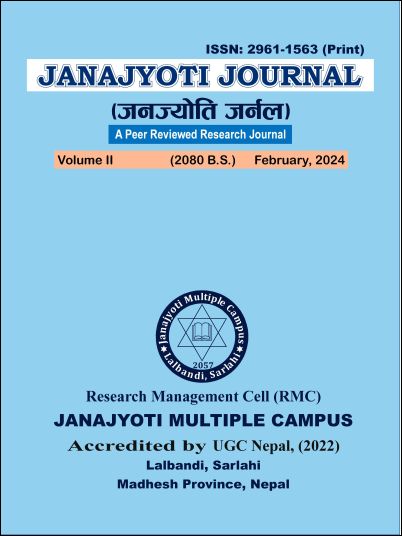Paradigm Shift in Mathematics Education
DOI:
https://doi.org/10.3126/jj.v2i1.68308Keywords:
Learning theories, mathematics, modern, paradigm, philosophy, postmodernAbstract
The purpose of this study is to investigate how learning theories and philosophical thought have changed from pre-modern to post-modern thought. A paradigm change is always essential to the development of a curriculum, education as well as nation. I used document analysis method to comprehensively analyze various philosophical and learning theories about mathematics, revealing the emergence of a new paradigm derived from mathematics education. It is critically investigated that the reform movement of the last century shared a common perspective on mathematics learning and knowledge. The postmodern paradigm has replaced the modern paradigm, and philosophy and theology will eventually evolve to reflect this shift. Social science as well as the humanities, management, literature, mathematics, and philosophy have all been influenced by postmodern ideas. The paradigm shift in mathematics education is a transition from passive memorization to critical thinking, problem-solving techniques, and active participation. In order to improve relevance and motivation, it entails embracing technology as a tool for inquiry and discovery, cultivating collaborative learning settings, and incorporating real-world applications. This change is a reflection of a wider understanding of the need to give followers the adaptable abilities they need to prosper in a world that is changing quickly due to complexity and innovation.




